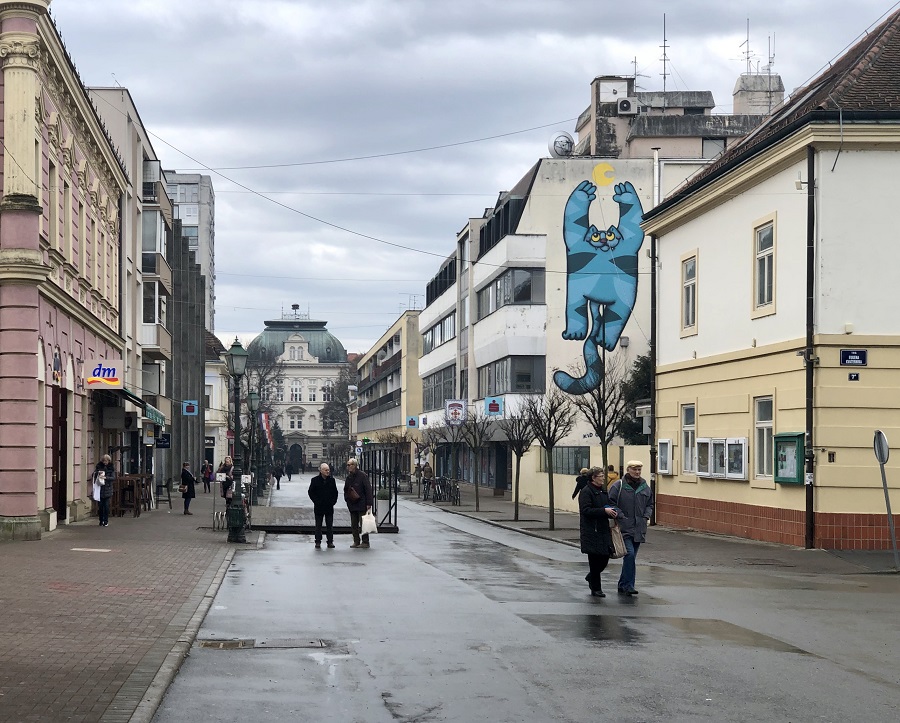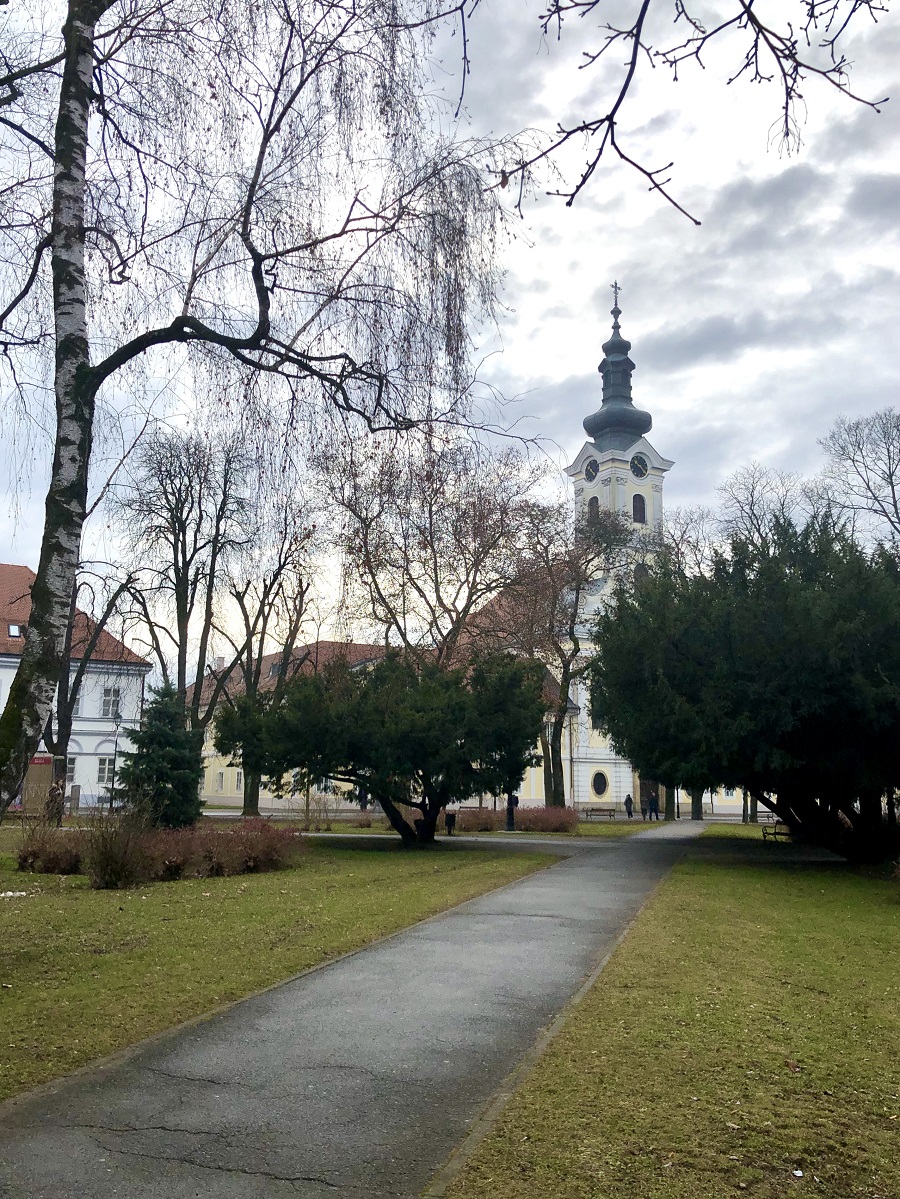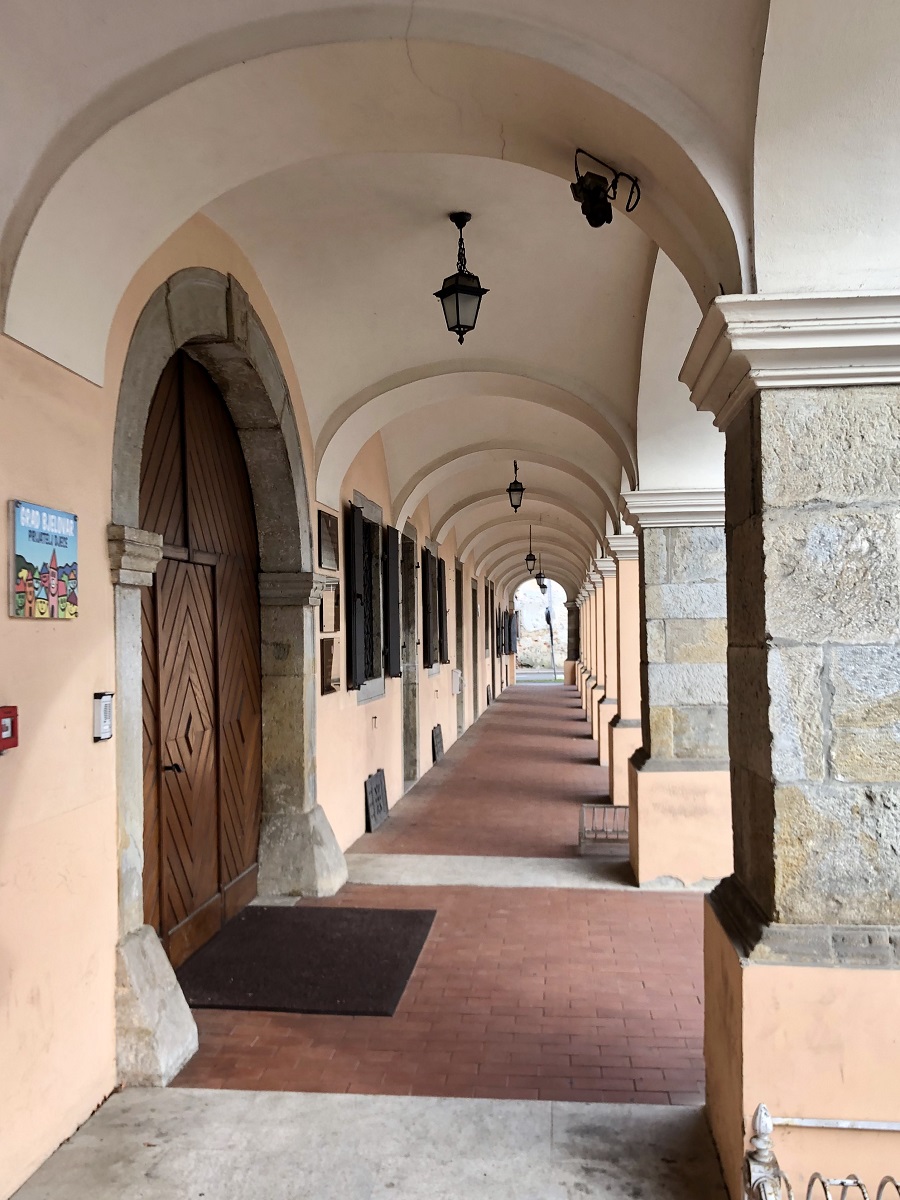HSLS Proposes Government Reshuffle
ZAGREB, 27 March 2022 - Dario Hrebak, leader of the HSLS, a junior partner in the ruling coalition, said after intraparty consultations on Sunday that the HSLS proposed a government reshuffle so that the government could focus on key problems to secure economic and overall stability as well as euro and Schengen area entry.
"With regards to the current political situation, the HSLS believes that at the moment Croatia needs stability in light of the global trends, lack of security, war, pandemic, refugee crisis and the related consequences such as inflation pressures, problems in supply chains and changes in energy policies and relations," the party said in a statement.
The HSLS leadership said the government had its support to keep the country stable, as well as make the necessary adjustments to overcome the current situation that was affecting everyone.
"As a constructive member of the ruling majority, the HSLS considers it necessary to refresh the government so that it could focus on dealing with key problems and secure economic and overall stability as well as accession to the euro zone and the Schengen areas," the statement said.
For more, check out our politics section.
Dario Hrebak: Croatian Covid Certificate System Should be Scrapped
January the 21st, 2022 - Should the Croatian covid certificate system be scrapped? With all eyes now on 2022's summer tourist season and the arrival of the much more mild but highly infectious Omicron variant, questions are hanging in the air.
As Poslovni Dnevnik writes, at a recently held coalition meeting, the situation with the spread of coronavirus, the new Omicron variant, and all of the accompanying epidemiological measures, including the issue of the Croatian covid certificate were discussed.
"What is good is that the Prime Minister comes and listens to us every Tuesday, and new proposals are always on the table. I talked publicly recently at the coalition meeting about what Israel has done, I think Israel is doing a good job as far as the coronavirus pandemic is concerned, I think we're doing a good job too, but it's precisely because I think we're doing a good job that we need to rethink some things. We have 16 thousand infected people, and yet hospitalisations are drastically dropping, the number of positive results among those tested is still growing, I don't think there is any need to test people anymore. As soon as over 50 percent of those being tested return positive results, there is no longer any need for testing.
I'm going to be open now, I always speak responsibly, but I always try to speak with common sense as well. We also have to think about the upcoming summer tourist season. We now need to simply revoke the Croatian covid certificate. They should have been adopted when they were adopted, but now is the time to abolish them, I suggested that at the meeting of the ruling coalition,'' said Dario Hrebak, president of the Croatian Social Liberal Party (HSLS) for HTV's Otvoreno (Open).
Asked whether or not the ruling party, HDZ, was ready to support this proposal, Josip Boric, vice president of the HDZ MPs' Club, said he had not been to the meeting and did not know what the discussions were, but has always listened to what the Civil Protection Directorate advised and said.
PM Andrej Plenkovic has since stated that the Croatian covid certificate system will remain in place for now, with Beros adding that the vaccination rate among the domicile population is still much too low to consider removing any epidemiological restrictions.
For all you need to know about coronavirus specific to Croatia, make sure to bookmark our dedicated section and select your preferred language if it isn't English.
Opposition: It's Not Good That PM Plenković is Trying to Intimidate Media
ZAGREB, 2 June, 2021 - Recent frequent attacks on media, reporters and political analysts by Prime Minister Andrej Plenković were met on Wednesday with condemnation by opposition MPs, who called on him to accept criticism and on media not to allow to be intimidated.
Social Democrat Arsen Bauk said the prime minister had opted for the "attack is the best form of defence" approach.
"Some defeats at local elections are painful for the HDZ, notably the prime minister, because he chose or imposed some of the candidates. It is not good for the prime minister, who has both objective and real power, to try to square accounts with or intimidate reporters, media and their editors and owners. I hope you will not let yourself be intimidated by him," Bauk told reporters in the parliament.
Judging by their response, I can see that they are not intimidated, he said, adding that he was fascinated by Plenković's claim that rival broadcasters had colluded to devalue the HDZ's candidate for Zagreb mayor.
Stephen Bartulica of the Homeland Movement said that media were possibly responsible for the latest developments because they had been very mild towards Plenković from the start.
"I definitely support media freedoms and it is not unusual that media in Croatia and the rest of the world are leaning to the left, but I think that what is more important here are the so-called independent analysts who often have material interests and certain relations with political camps and NGOs and who act in public as if they were unbiased," said Bartulica.
The sole MP of the Reformists party, Natalija Martinčević, who chairs the parliamentary Media Committee, said that the prime minister was very nervous, which she considers inappropriate.
"Communication with the media must be civilised. We are all expected to behave that way and so is the prime minister. There is no justification for his behaviour," she said.
Most MP Marija Selak Raspudić said that media had been the PM's fetish for a long time.
"Let me remind you of his high school graduation thesis 'Means of Mass Communication' in which, apart from extensively quoting (Yugoslav Communist politician Edvard) Kardelj and Marx, he also says that the Party is the one to control all information in society. He then advocates some democratic trends and says that media should be democratised, but it seems that as an experienced politician he has accepted the principle that the Party should control all information and is surprised when he does not manage to do it," said Selak Raspudić.
HSLS MP Dario Hrebak said that every politician had their own style of communication, noting that the prime minister was evidently irritated by something.
"I, too, am sometimes unhappy with the media but everyone has the right to say what they think, I would not be a liberal if I thought differently," he said, adding that he believed the prime minister would mend his relationship with the media and some reporters.
aFor more about politics in Croatia, follow TCN's dedicated page.
Bjelovar Mayor Hails 2020 'Most Successful Year Ever' as McDonalds Opens Bringing 40 Jobs
January 3, 2021 - While 2020 was a terrible year for most, there were plenty of success stories in Croatia. For some, such as the business-friendly Bjelovar Mayor, Dario Hrebak, it was the most successful year in his city's history.
It is almost a year since I wrote the most unlikeliest of titles in the modern Croatia - Seeds of Change: My City is Corruption-Free, Claims Croatian Mayor.
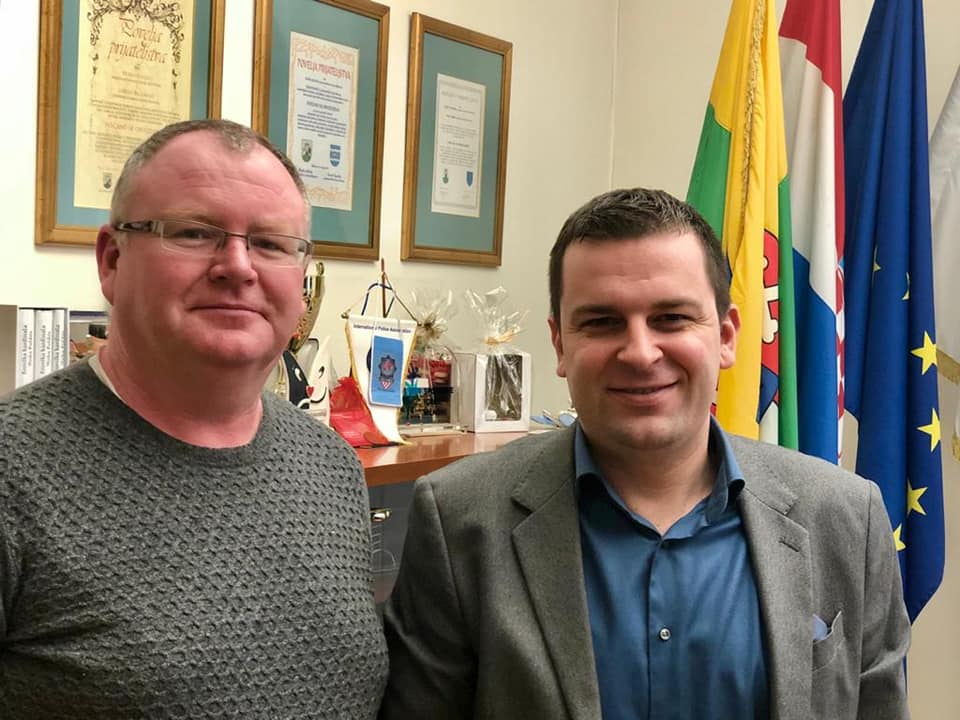
Bjelovar Mayor Dario Hrebak appeared to be a mayor with a different agenda than the ones I was used to in local politicians - lining their pockets, rewarding party loyalists and cousins with the top jobs, and using the position to maintain the status quo rather than working for the citizens of the town.
Reducing the number of people in his administration to make it more efficient (never a vote winner), slashing local business taxes to encourage investment, and digitising the system to make it more efficient and user-friendly. Not things one was sadly accustomed to in public administration in Croatia.
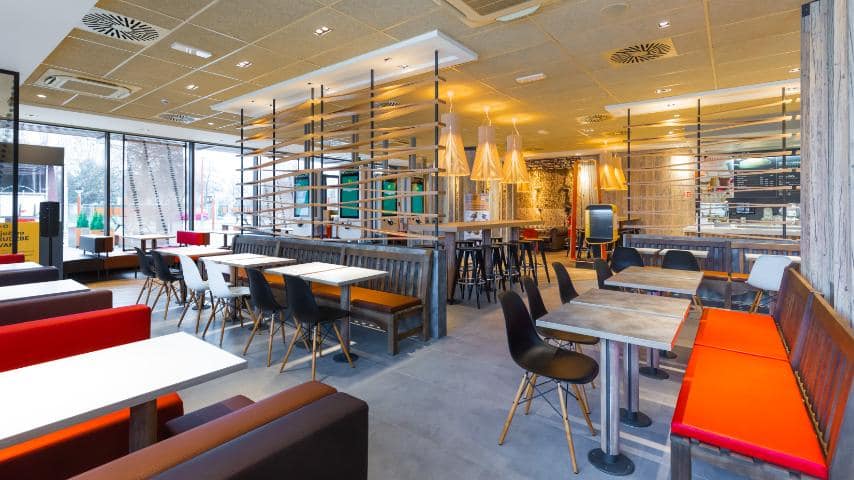
The pandemic has prevented me from taking a more active interest in Bjelovar on the ground this year, but we have been following progress from afar.
The Bjelovar mayor has always been very communicative on social media, and his latest post on Facebook today hails not only the opening of the first McDonalds (and accompanying 40 jobs) in his city, but also the fact that his policies seems to be working - he claims that 2020 was the most successful year in the history of Bjelovar, and that there is more to come in 2021:
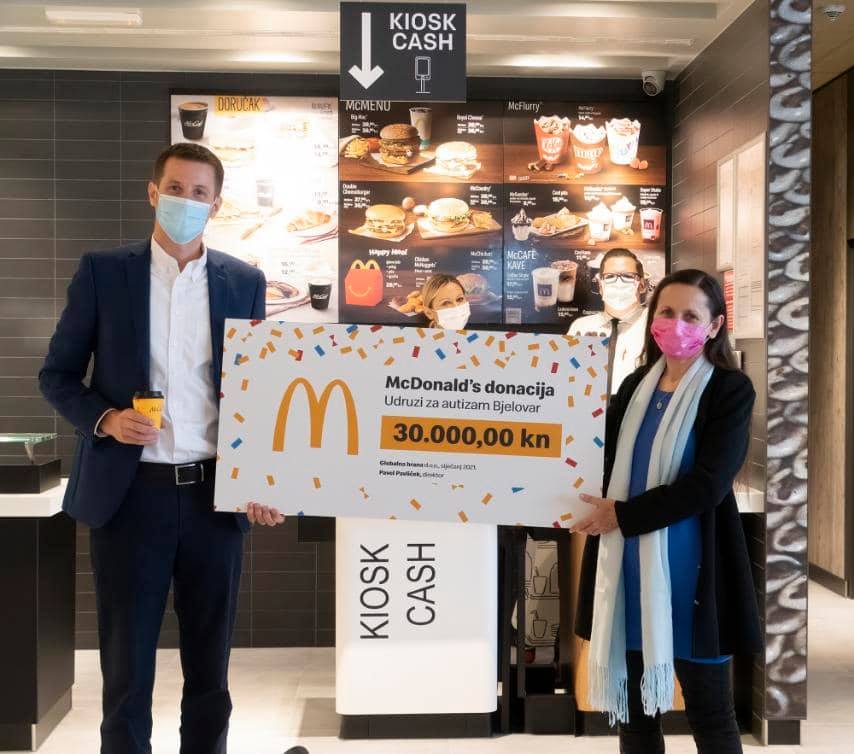
For years we have been building Bjelovar as ′′business-friendly", a city with one of the best business environments in Croatia, where the entrepreneurial kuna is valued more than in most other cities in Croatia. McDonald's opened today in Bjelovar. The investment, greater than 2 million euros, was implemented within a short period of only a few months. 40 new employees will have jobs, and this investment is proof that Bjelovar has become a desirable destination for many investors. The city that abolishes its taxes, quickly issues all necessary permits, reduces public administration and makes it more efficient, I'm sure there will be targets and new manufacturing investments.
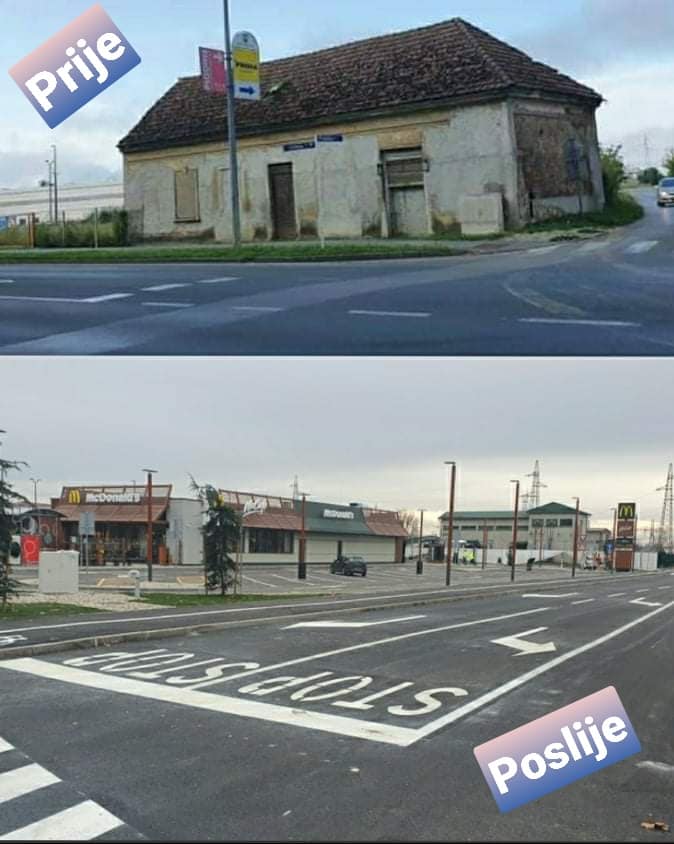
(Site of the new McDonalds in Bjelovar - before and after)
All entrepreneurs and investments are welcome to our Bjelovar, and the competition encourages us to be better, faster and more agile.
And to finish, some more good news, despite the crisis, we have completed one of the more demanding years in which after 20 years we abolished the apparatus, exempted payment entrepreneurs and other taxes and compensation so that they could keep their jobs, and on the other hand by implementing a budget of about 250 million kunas, this is the most successful year in the history of our city! Happy new year 2021. to us!
I'm convinced it will be even more successful!
You can follow the latest from Bjelovar in the dedicated TCN section.
Dario Hrebak: Don't Let Private Sector Suffer & Public Sector Carry on as Normal
April 9, 2020 - HSLS president and Mayor of Bjelovar Dario Hrebak stressed the importance of not allowing the private sector to carry the weight of the crisis as was the case in recession, calling for solidarity.
Commenting on Government measures, Hrebak expressed his belief that the measures will be effective, but stressed that more will be needed in the coming period. Hrebak pointed out that the crisis showed which parts of the public sector are essential and concluded that the Government should work towards transforming the bureaucratic apparatus into efficient administration.
Social Liberal Party (HSLS) president and Mayor of Bjelovar Dario Hrebak stressed the importance of not allowing the private sector to carry the weight of the crisis, calling for solidarity, reported the media on Wednesday. He reminded people that the private sector suffered in recession, unlike the public sector, and revealed that the City will spend about 10% of its budget to save as many jobs and investment projects as possible.
Hrebak noted that Bjelovar will cut all non-essential spending, stressing that it will not spend money on manifestations and cut NGO financing. Commenting on Mayor of Zagreb Milan Bandić, Hrebak pointed out that the earthquake which recently struck Zagreb dispelled the myth of Bandić's competency. He noted that many City-owned buildings were damaged severely in the earthquake due to neglect and added that HSLS will start a petition for early local elections in Zagreb after the pandemic.
Answering to a reporter, Hrebak noted that Croatian Union Central (MHS) president Vilim Ribić is against showing solidarity to the private sector and added that he is trying to blur the line between workers in essential public services and public sector bureaucrats. Commenting on Government measures, Hrebak expressed his belief that the measures will be effective, but stressed that more will be needed in the coming period.
He reminded people that Bjelovar waived surtax, communal fees, rent and kindergarten fees, among others, stressing that these measures are aimed at saving jobs and helping entrepreneurs weather the crisis.
Hrebak pointed out that the crisis showed which parts of the public sector are essential and concluded that the Government should work towards transforming the bureaucratic apparatus into an efficient administration.
You can read the full interview in Croatian in Jutarnji List.
Croatian Presidential Candidate Embraces Bjelovar Seed of Transparency in New Party Launch
March 5, 2020 - There is a virus spreading slowly through Croatia which is not corona - the healthy virus of transparency whose Patient Zero is in Bjelovar.
It is always nice to see something healthy at its early stages and watch it grow. And grow. And grow.
While most of the world is following the spread of coronavirus, there is another virus which has started to spread slowly, much more slowly, in parts of Croatia. It started in the city of Bjelovar, one hour east of Zagreb, and it has already spread to the Adriatic coast, to Omisalj on the island of Krk, as well as closer to Zagreb to the west - Sveta Nedelja. And this new virus, which is actually very healthy, is set to expand all over the country.
It is the virus of transparency and a better and more accountable future for Croatia.
As we recently reported on TCN, the city of Bjelovar has become the first city in Croatia to embrace the digital age, make all expenditures transparently available, and reduce local taxation while increasing tax revenues. The Bjelovar revolution really is quite incredible in the context of modern Croatia, and you can read more about my inspiring day out in Bjelovar when I first met Mayor Dario Hrebak.
I was in Bjelovar again this week for what must have been a first in Croatia - a conference on transparency. Along with Hrebak and his Bjelovar team was the Mayor of Omislalj. Along with Sveta Nedelja, here are the first three communities in Croatia to explore the path of transparency and digitisation. You can read more about the transparency conference which took place in Bjelovar this week here.
But is the virus of transparency spreading quicker than we think? A rather unlikely bedfellow supporting the Bjelovar model appeared this week, as former Presidential candidate Miroslav Skoro - who came a very close third to Kolinda Grabar-Kitarovic in the first round - hailed transparency and the Bjelovar model as the way forward:
''When you have a state budget, you need to take something from somewhere in order to provide any sort of relief. Better and more transparent business is needed, just take a look at the City of Bjelovar,'' he explained, adding that every citizen should know how every kuna from the budget is spent.
The virus of transparency is spreading in Croatia, slowly but surely. How refreshing to see that some viruses are actually very healthy.
For more information on the Bjelovar transparency revolution, follow the dedicated TCN Bjelovar section.
Transparent Bjelovar Gives Rest of Croatia Food For Thought
A modern and transparent Bjelovar is a shining example for the rest of Croatia. From lowering surtax to making the city administration actually work for the residents, what this continental Croatian city has done should be looked upon as a drawing board for the entire country - which is lagging behind severely.
As Vecernji list/Poslovni Dnevnik/Lucija Spiljak writes on the 3rd of March, 2020, the now transparent Bjelovar has reduced surtax, the city government is fast, efficient and more clear, has nothing to hide, and wants citizens to know what they are paying into the city budget, why, and exactly where it's going.
Bjelovar is the most transparent city in all of Croatia, which has shown the entire country how to accelerate the development of entrepreneurship and increase employment, with a free application through which all citizens have access to payments from the budget of the City of Bjelovar. This was precisely the reason for the conference entitled How Transparency Affects Entrepreneurship which was held by the City of Bjelovar in cooperation with Vecernji list and Poslovni Dnevnik at the Bjelovar Cultural and Multimedia Centre.
On this occasion, Vladimir Nisevic, Editor-in-Chief of Poslovni Dnevnik, said that there is a link between transparency and the economy and that it needs to be nurtured.
"Businessmen and citizens want to know how public money is being spent, and that should be the rule in Croatia. Therefore, us at Poslovni Dnevnik and Vecernji list want to change society and send clear and important messages about the inevitable connection between the economy and transparency,'' said Nisevic during his opening speech.
The Mayor of the City of Bjelovar, Dario Hrebak, emphasised that they were no longer the only transparent local self-government united in Croatia, but that the municipalities of Omisalj and the City of Sveta Nedelja had also joined them on that highly commendable list.
He also recalled the term ABC, which means ''Anything but Croatia'', referring to the numerous foreign investors who were bypassing Croatia due to the dreadful bureaucracy, excessive taxes and corruption.
"If we send a strong message to citizens who have the right to know how politicians spend their money, then we're sending out a strong message that in Bjelovar, the kuna is worth more than any other kuna invested in Croatia. The emphasis is placed on transparent behaviour and the fight against corruption. We've reduced surtax, the city government is fast, efficient and more clear, we've got nothing to hide and we want our citizens to know what they are paying into the city budget for,'' stated Hrebak when discussing the commendable transparent Bjelovar, before continuing:
''Therefore, we'd like to invite investors to come and invest in the City of Bjelovar, because theirs, that is, your kuna, is worth more here than it is anywhere else in Croatia,'' Hrebak said, adding that the modern economy cannot exist on the basis of the bureaucratic model of the last century.
Then, Helena Schmidt, a partner in Deloitte's tax advisory department, presented the current state, challenges and prospects for the future of local and state tax levies.
In a one-on-one interview, Vladimir Nisevic and Davor Huic, president of the Lipa Taxpayers Association (Udruga Lipa), discussed ways to spend public money and implement structural reforms for an efficient system that actually works in the service of citizens.
Huic explained that since he had decided to engage in public activities back in 2014, when the Lipa Association initially started its operations, he himself decided to comment on policies and make his view public, especially after he added that three governments had reacted incorrectly to the economic crisis which for Croatia meant the loss of 150,000 workers and then a demographic crisis.
''During the time of Tim Oreskovic's government, which didn't address ideological issues, I was an advisor and the focus was on fiscal consolidation, the economy and stimulating economic growth. The current Croatian government is lucky and Plenkovic and Maric are doing good things, but that isn't enough. It's no longer just about taxes but also about the quality of service.
Well, in Zagreb, where the surtax stands at 18 percent, schools don't have soap. That's the whole picture of the Croatian public sector because it takes a lot, but it gives very little,'' Huic said, adding that people who exercise positions of public authority have an obligation to citizens to be accountable and responsible.
He also believes that Croatia is facing a lack of democracy and democratic awareness.
''We insist on lower taxes so that we're left with more money for other things, we want to change and specify the relationship between taxpayers and the authorities. Cities have introduced transparency, started cutting taxes and this is an indication that the climate is changing. They've recognised the citizens' need for a transparent policy. Political elites can't just dispose of public money as they wish, but they should spend it effectively and for the public good, which isn't the situation at the moment,'' he warned.
He also used the opportunity provided by the now transparent Bjelovar to touch on the often needlessly confusing topic of health insurance in Croatia, which he says is universal and that actually few people pay in, but nobody controls or rationalises the costs.
"There should be service prices to integrate the public and private parts, including vouchers. Regarding pension insurance, regulation is needed because there are various legal ways to ''get'' a pension, and of the 1,200,000 pensioners, a large proportion haven't worked full-time,'' he warned.
He thinks there are two approaches: to wait for people with a mindset like himself and transparent Bjelovar's Mayor Dario Hrebak, or for local government units to digitise the public administration, such as, he said, in Sveta Nedelja. where it's possible to evaluate people's work in the public sector.
''The Government of the Republic of Croatia has no right to adopt measures that slow down Croatian growth and therefore it makes no sense to adopt measures that reduce our competitiveness. The Lipa Association will demand from all political parties and impose that the central government make the state budget transparent and that the local self-government units introduce a measure on the example of Bjelovar,'' concluded Davor Huic.
After the interview, Deputy Mayor of the City of Bjelovar Igor Brajdic gave a presentation on the development of the economy in the now transparent Bjelovar, referring to the general measures for stimulating entrepreneurship, both realised and planned projects, and the connection between an open budget and transparent spending with the general progress of the economy.
Make sure to follow our dedicated politics page for more on transparent Bjelovar.
As Revenues Continue to Rise, Bjelovar Mayor Hints at More Tax Cuts
February 3, 2020 - More Bjelovar tax cuts appear to be on the way, as Mayor Dario Hrebak announces more rising income after halving local tax last year.
Writing online can be a lonely business. With no colleagues in the office to joke around with, one has to look for other ways to get one's kicks during the working day.
One of my new things is to write about something positive in Croatia and wait to see how long it takes for someone to attack that positivity with a negative comment. As I said on my recent interview on Romano Bolkovic 1 na 1, Croatians have a default mentality which is negative (of which more in a bigger article coming soon), and the saying that a Croatia can forgive you anything but success is something I have found to be very true in my experience.
And no matter how good the story, some people will look to find the negative, even if it doesn't exist, and waiting to see what these merchants of doom have to say is how I get some of my kicks on those lonely days online alone.
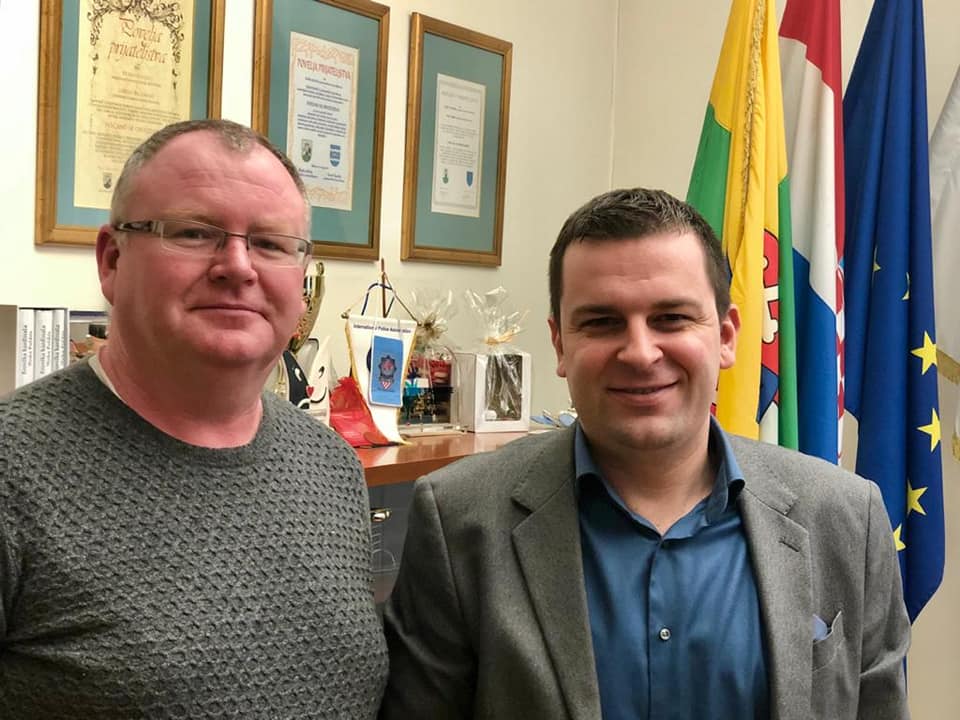
Last week we brought you an in-depth feature on the Mayor of Bjelovar, Dario Hrebak, who made the rather unusual claim for a Croatian official - My city is corruption-free.
Hrebak is certainly doing things a little differently. He was the first mayor to introduce digitalisation into his administration, the first to make transparently available all expenditures down to official lunches, slashed local tax from 12% to 6%, and reduced the size of his administration by 10%, partly as a result of the digitalisation and efficiency savings. The payroll used to take three days to do, now it takes just 3 hours. And the tax reduction seems to be stimulating something, for he reported a couple of weeks ago that the tax cut had stimulated some 250,000 extra tax revenue into Bjelovar's coffers in the first 17 days of this year, compared to the corresponding period in 2019.
What's not to like about this one? I knew it wouldn't be long until I found out.
"This is all just PR. Hrebak is all about PR, nothing else."
I smiled. During our interview, the mayor had told me that this would be a reaction to anything I decided to write. His answer was that a good story attracts good PR, and the reality is in the numbers. He released more numbers today on his Facebook page.
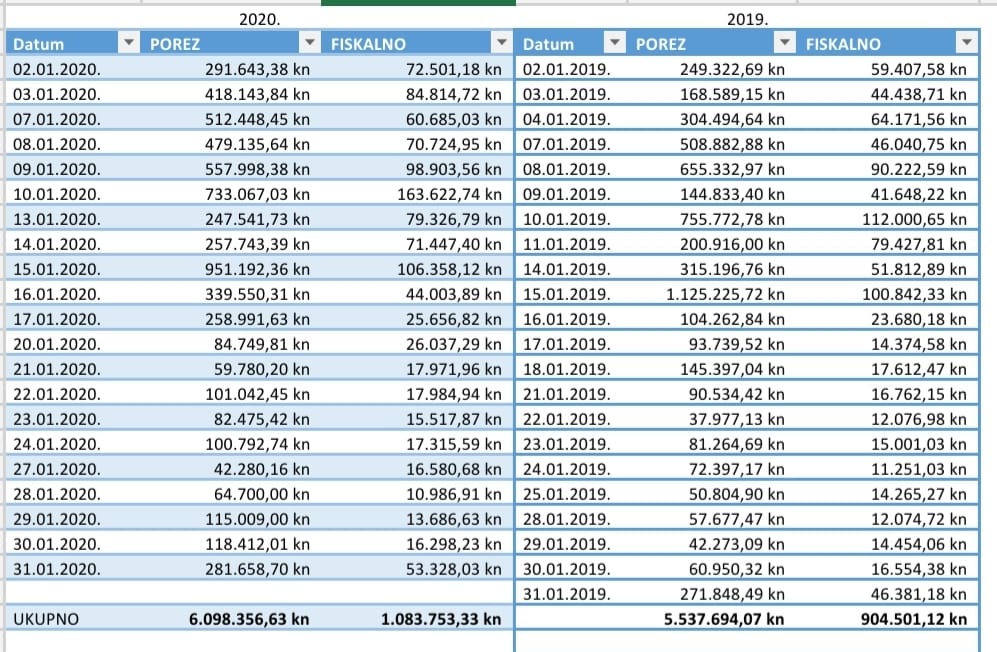
As things stand now, it was no coincidence. Although we reduced the surtax by half, although in January 2019 it was one working day longer, we raised HRK 740 thousand more. We'll wait for February, but right now I think we can announce another cut in June.
I can't comment on Hrebak's PR and how it works, as I didn't ask, but this is how it worked in my case. I had never heard of him until a couple of weeks ago. Hearing about a mayor who was promoting digitalisation, transparency, taxation and a smaller administration in Croatia seemed a very interesting story for TCN to cover. I got his number, sent him an SMS and was in his office for an hour later, before I wrote my article Seeds of Change: My City is Corruption-Free, Claims Croatian Mayor.
As the man said, a good story attracts positive PR.
So who else would like to live in a town or city which has transparency of expenditure, digitalised services that you can access in the comfort of your own home rather than going to wait in line in an office, reduced taxes to stimulate business, and reduced expenditure on adminstration so that more can be spent on the community?
If that is something you would like, why not ask your own mayor when this level of transparency and progress will be coming to where you live?
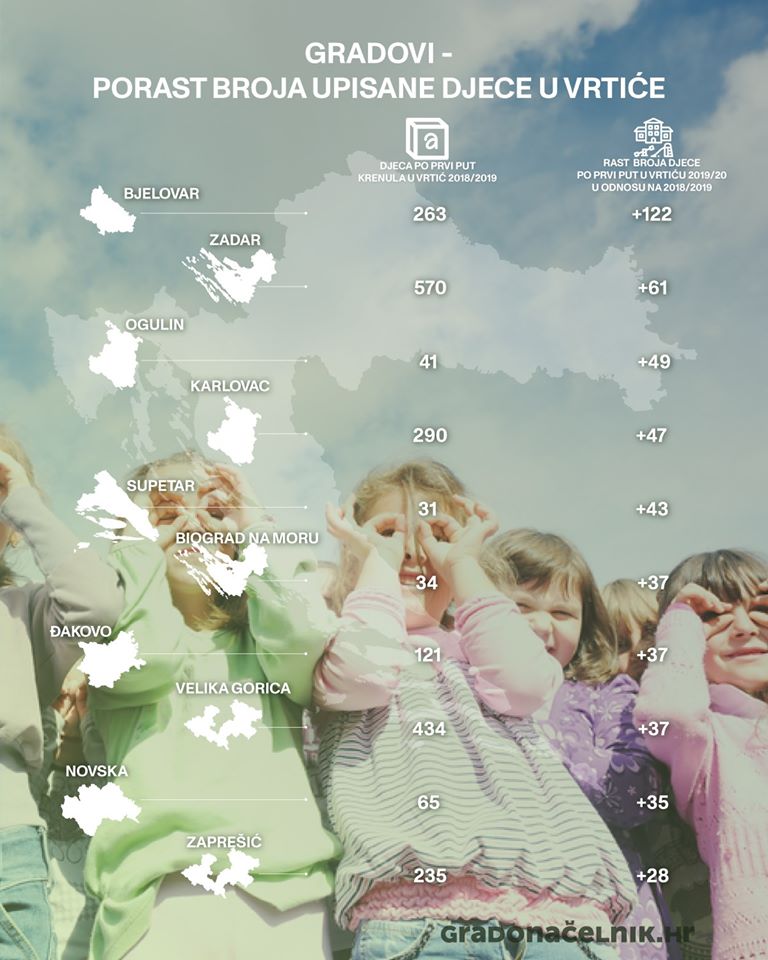
Maybe there is something in the water in Bjelovar, as Hrebak also announced some more good news in addition to the Bjelovar tax update - the city has the largest growth of young kids inscribed in kindergarten in the whole country.
Now all I have to do is publish this, sit back and wait for the negative Croatian mindset to tell me why that is a bad thing.
To follow the latest from Bjelovar, follow the dedicated TCN section.
Seeds of Change: My City is Corruption-Free, Claims Croatian Mayor
January 29, 2020 - Is change really possible in Croatia, a society where corruption is rife wherever you look? Meet Dario Hrebak, the dynamic young Mayor of Bjelovar, who believes not only that it is possible, but that his city is free of corruption.
Living on Hvar for 13 years, eastern Croatia was for many years a total mystery. The only places that you ever heard about were Vukovar and Osijek, and I maintain that many people living in Croatia today only have a very sketchy understanding of what there is to see and do once you head east of the capital. Which is a pity, for people are really missing out. As we reported late last year, you can have an awful lot of fun heading on east for a weekend.
Over the years, my knowledge of the east has improved considerably, but there was still one sizable town that I knew almost nothing about, one which I could not with certainty place on the map.
Bjelovar.
A city of more than 40,000 people, I knew almost nothing about it apart from the fact that its handball team had once been the Kings of Europe almost 50 years ago. But Bjelovar has been very much on my radar in the last few weeks, as so many people told me the same thing when I asked them for examples of non-corrupt politicians in Croatia, and for examples of good governance at the local level. Of politicians serving the public good rather than linking their own pockets.
Dario Hrebak, the Mayor of Bjelovar, Member of Parliament, and President of the HSLS Liberal Party.
The stories I was hearing were scarcely credible in the modern Croatia. His was the first local administration in Croatia to introduce digitalisation, whereby certain services could be done online more efficiently and comfortably than having to queue and take up an official's time for a function that could be done online without human interaction. All the costs of the administration became publicly available, even down to the cost of a lunch on official business. As part of the efficiency drive, he is the only mayor to reduce the staff of his administration - by 10% - with another 10% in the pipeline by the end of his mandate. And while he could not control taxation at the national level, he slashed local tax from 12% to 6%, with a plan to take that down to zero by the end of the year. The result? More than 250,000 kuna MORE in the administration's bank account in the first 17 days of 2020, compared to the same time last year.
Digital, transparent, pro-business and entrepreneurship, not afraid to tackle the waste in the administration. All this happening in modern, corrupt and unreformable Croatia. Could this Dario Hrebak be an agent of change? I had to meet him.
He responded promptly to my text message, complimented me on TCN which he knew well, and invited me to visit him in Bjelovar.
It was quite a meeting.
"Meetings, meetings, meetings," he began warmly, clearing the folded daily newspaper from his desk. "So many meetings and no time to even read the morning newspaper headlines."
"But you had time for your morning coffee, surely? Croats cannot function without their coffee," I replied.
"Well, no, not even that, as you can see - just this half-finished mug of tea."
It quickly became apparent why there was no time for newspapers and cups of tea in the world of Dario Hrebak - he was a man on a mission, extremely focused on his objectives and next moves. An active member of liberal parties for more than 15 years, including the European Liberal Youth movement, through which he travelled extensively, picked up best practices from other countries, and widened his mindset beyond the more socialist upbringing of his peers in this post-Yugoslav state, Hrebak had clearly had enough of corruption and was determined to introduce a regime of transparency and progress in his city.
These are words that one hears a lot in Croatia, but they are not followed up on.
Bjelovar and Dario Hrebak are different. Here's why.
Of the many obstacles to real change in Croatia, one of the most intransigent is the relationship between voters and those in power. Those in power depend on getting enough votes to continue their private gains from the public purse, and they will do anything to stay in power. This includes giving jobs of little or no value to unqualified but loyal people. A job for life in exchange for a vote for life. Or rather votes for life. If the father has a nice job in the administration in this sea of unemployment, all the other voters in the extended family are going to make sure it stays that way come election time. This is not a practice unique to Croatia, of course, but it has become an art form, and until that cycle is broken, real change will not be possible, bloated administrations will continue to grow, more war veterans will be added to the list, and taxes will have to rise so that the shrinking number of honest workers and entrepreneurs can contribute the money to pay for all this.
It would be political suicide to mess with that system. Reducing benefits, abolishing unnecessary jobs, thereby cutting those previous jobs and risking the multiple votes in the process.
Dario Hrebak is attempting a full-frontal assault on the system, betting that efficiency savings, better quality of life, transparency, economic growth and real jobs will win the day.

He has made a very impressive start, as the numbers show. When he started, his budget was 130 million kuna, then 148 million in 2018, 180 million last year, and it will be over 200 million this year. As the income grows, he wants to keep the expenditures on the same level, while pouring the surplus revenue into tax reductions, projects, and stimulating the economy. Bjelovar was bottom of the list for extracting EU finds when he started, now it is in the top 10 towns in Croatia.
His small digital revolution is still largely in beta mode, but there are already concrete results, and he gave me a couple of examples. The monthly payroll used to take the employee three days to perform. Now, with much of it digitised, that process is performed in just three hours.
There are now ten concrete services that can be performed online via the dedicated app which has been created. New-born babies are entitled to 1000 kuna from his administration. Previously, that would have involved a visit to the office from the young mother, forms to be filled in, another meeting, period of checking and approval, and so on. Now that can all be done from home online, without all the stress of taking the young child around the famous Croatian bureaucratic system.
The plan is to put almost all services online in the same way. Quicker services, less public administration needed, more efficient procedures, and all without the need to leave the house and queue to get the blessing of a grumpy official.
Standard practice in countries like Estonia. Absolutely revolutionary for Croatia.
One of the first acts he did as mayor was to cut social welfare where it was not needed. Bjelovar has an unemployment rate of 6%, around 200 people. Rather than continue with the generous benefit for the unemployed, he announced that he would be happy to pay it to those without a job who reported for work at his administration, where they would be put to work as required. Of the 200 contacted, just four showed up for work, which meant that 196 had their benefits cut. More money in the administration's budget, less cash simply given to people who did not want to work. More votes under threat as vested interests are challenged.
"If someone genuinely needs help, an operation or something, then the city is ready to help absolutely," said Hrebak. "But why should the city cover someone's laziness? This whole system was created by HDZ and SDP, which are both social parties. We have literally made invalids out of people. Sadly, the most important question in Croatia today remains - are you left or are you right?"
The mayor is putting a lot of faith and investment into IT and attracting foreign investment. There is a tax-free model for foreign investors regarding local taxes (he cannot influence tax policy at the national level) - land for one kuna, communal tax one kuna, communal contributions one kuna, free space, electricity and other utilities. Bjelovar has the biggest startup contest in Croatia, with prize money of 100,000 kuna, and judges from the entrepreneurial and banking worlds. The University of Bjelovar's first IT graduates have all found employment.
And the investors are coming. TCN recently reported on the first geothermal power plant in Croatia, which was built by Turkish investors with an investment of over 40 million euro under a concession. Hrebak says the return on investment will take just six years, and also that there are other thermal water sources which can provide three more plants. His plan is to build a spa in one of these locations with city money, then find an investor to build the second hotel the town so badly needs. It will be located just 50 metres from the exit of the new stretch of motorway which will open in 2-3 years - and eventually connect Bjelovar with Budapest, making this an attractive spa stop for Hungarians heading to the coast.
He is disappointed, but not surprised, that no other town has followed his lead, despite many fine words about fighting corruption.
"I know 5-6 young mayors, and I am sure that they are not corrupt. But despite the words, they have done nothing. The reason is the system - they are scared of losing those votes which will cost them power. This is the cycle we have to break in Croatia, in order to progress."
"This is a long, long fight, a marathon. The only way to make this change is through patience and persistence. We will keep on trying, delivering excellent services, cutting tax and administration, and providing the best incentives for foreign investment. We are small, with just 1% of support, but we are trying. My city is corruption-free."
And, as he went to take a first sip of the cup of tea that he made several hours ago, I concluded that I for one would not bet against Dario Hrebak expanding his digital and transparent revolution far beyond the borders of Bjelovar, especially if international institutions and the EU took a greater interest and offered support.

it is a topic we will be returning to very soon. For the very latest from Bjelovar, check out the dedicated TCN section.


